- Home
- Iris Murdoch
The Black Prince
The Black Prince Read online
Table of Contents
THE BLACK PRINCE
Title Page
Copyright Page
Introduction
Dedication
Foreword
The Black Prince - A Celebration of Love
Part One
Part Two
Part Three
Postscript by Bradley Pearson
Four Postscripts by DRAMATIS PERSONAE
Postscript by Francis
Postscript by Rachel
Postscript by Julian
Editor’s Postscript
THE BLACK PRINCE
Iris Murdoch was born in Dublin in 1919, grew up in London, and received her university education at Oxford and later at Cambridge. In 1948 she became a Fellow of St. Anne’s College, Oxford, where for many years she taught philosophy. In 1987 she was appointed Dame Commander, Order of the British Empire. She died on February 8, 1999. Murdoch wrote twenty-six novels, including Under the Net, her writing debut of 1954, and the Booker Prize-winning The Sea, the Sea (1978). She received a number of other literary awards, among them the James Tait Black Memorial Prize for The Black Prince (1973) and the Whit-bread Prize for The Sacred and Profane Love Machine (1974). Her works of philosophy include Sartre: Romantic Rationalist (1987), Metaphysics as a Guide to Morals (1993), and Existentialists and Mystics (1998). She also wrote several plays and a volume of poetry.
MARTHA C. NUSSBAUM is Ernst Freund Distinguished Service Professor of Law and Ethics at the University of Chicago, appointed in the Philosophy Department, Law School, and Divinity School. Her books include The Fragility of Goodness (1986, rev. ed. 2001), Love’s Knowledge (1990), Poetic Justice (1995), and Upheavals of Thought: The Intelligence of Emotions (2001).
By the same author
Philosophy
SARTRE, ROMANTIC RATIONALIST
THE FIRE AND THE SUN
ACOSTOS: TWO PLATONIC DIALOGUES
METAPHYSICS AS A GUIDE TO MORALS
EXISTENTIALISTS AND MYSTICS
Fiction
UNDER THE NET
THE FLIGHT FROM THE ENCHANTER
THE SANDCASTLE
THE BELL
SEVERED HEAD
AN UNOFFICIAL ROSE
THE UNICORN
THE ITALIAN GIRL
THE RED AND THE GREEN
THE TIME OF THE ANGELS
THE NICE AND THE GOOD
BRUNO’S DREAM
A FAIRLY HONOURABLE DEFEAT
AN ACCIDENTAL MAN
THE BLACK PRINCE
THE SACRED AND PROFANE LOVE MACHINE
A WORD CHILD
HENRY AND CATO
THE SEA, THE SEA
NUNS AND SOLDIERS
THE PHILOSOPHER’S PUPIL
THE GOOD APPRENTICE
THE BOOK AND THE BROTHERHOOD
THE MESSAGE TO THE PLANET
THE GREEN KNIGHT
JACKSON’S DILEMMA
Plays
A SEVERED HEAD (with J. B. Priestley)
THE ITALIAN GIRL (with James Saunders)
THE THREE ARROWS
THE SERVANTS AND THE SNOW
THE BLACK PRINCE
Poetry
A YEAR OF BIRDS
(Illustrated by Reynolds Stone)
PENGUIN BOOKS
Published by the Penguin Group
Penguin Group (USA) Inc., 375 Hudson Street,
New York, New York 10014, U.S.A.
Penguin Group (Canada), 90 Eglinton Avenue East, Suite 700, Toronto,
Ontario, Canada M4P 2Y3 (a division of Pearson Penguin Canada Inc.)
Penguin Books Ltd, 80 Strand, London WC2R ORL, England
Penguin Ireland, 25 St Stephen’s Green, Dublin 2, Ireland
(a division of Penguin Books Ltd)
Penguin Group (Australia), 250 Camberwell Road, Camberwell,
Victoria 3124, Australia (a division of Pearson Australia Group Pty Ltd)
Penguin Books India Pvt Ltd, 11 Community Centre, Panchsheel Park,
New Delhi — 110 017, India
Penguin Group (NZ), 67 Apollo Drive, Mairangi Bay,
Auckland 1311, New Zealand (a division of Pearson New Zealand Ltd)
Penguin Books (South Africa) (Pty) Ltd, 24 Sturdee Avenue,
Rosebank, Johannesburg 2196, South Africa
Penguin Books Ltd, Registered Offices: 80 Strand, London WC2R 0RL, England
First published in Great Britain by Chatto & Windus 1973
First published in the United States of America by The Viking Press 1973
Published in Penguin Books 1983
This edition with an introduction by Martha C. Nussbaum
published in Penguin Books 2003
Copyright © Iris Murdoch, 1973
Introduction copyright © Martha C. Nussbaum, 2003
All rights reserved
eISBN : 978-1-101-49568-1
CIP data available
The scanning, uploading and distribution of this book via the Internet or via any other means without the permission of the publisher is illegal and punishable by law. Please purchase only authorized electronic editions, and do not participate in or encourage electronic piracy of copyrighted materials. Your support of the author’s rights is appreciated.
http://us.penguingroup.com
Introduction
by Martha C. Nussbaum
Erotic love illuminates and blinds. It reveals the sheer particularity of another person in a way that perhaps no other human experience can. And yet it also creates an egoistic fog around lovers, preventing them from seeing the other person truly. This is the problem Murdoch explores in The Black Prince, combining as successfully as in any of her novels formal intricacy with human immediacy, and philosophical meditation with a moving drama of character.
The Black Prince is narrated by Bradley Pearson, unsuccessful author. At the age of fifty-eight, after living alone for many years, Bradley suddenly finds himself in love with Julian Baffin, the teenage daughter of his literary rival, Arnold Baffin. Arnold, a prolific popular novelist for whose works Bradley has a contempt not altogether unmixed with envy, pities Bradley for his failed career. Meanwhile, Arnold’s unhappy wife, Rachel, has recently taken a sexual interest in Bradley, and he, to some extent, in her. Bradley’s sudden recognition that he is passionately in love with Julian thus sets the stage for the novel’s comic and tragic intricacies. It also presents the reader with one of Murdoch’s most vivid and moving accounts of erotic love.
Recalling his meeting with Julian at the restaurant on top of the Post Office Tower, Bradley calls it a moment of “blinding joy.” “It was as if stars were exploding in front of my eyes so that I literally could not see.” His breathing was rapid; “a quiet and perhaps outwardly imperceptible shuddering possessed my whole frame” (230). His legs “ached and throbbed,” his knees were weak, and a feeling of giddiness filled his body, locating itself primarily in the genitals. Those, he recalls, were some of the physical symptoms:They can readily be sketched in words. But how to convey the rapture of the mind, as it mingles with the body, draws apart into itself, and mingles again, in a wild and yet graceful dance? The sense of being absolutely in the right and longed-for place is fixed and guaranteed by every ray in the universe.... Consciousness half swoons with its sense of humble delighted privilege while keen sight, in between the explosions of the stars, devours every detail of the real presence. I am here now, you are here now, we are here now. To see her among others, straying like a divine form among mortals, is to become faint with secret knowledge. (231)
In this artful retrospective description of the blinding force of new erotic love, Bradley alludes, as several times elsewhere in his narrative, to the description of falling in love in Plato’s Phaedrus. He depicts his pas
sion as a moment of blinding light and sudden vision, vision of a form of goodness and beauty from which mortal eyes are typically cut off. Bradley thus suggests that his love offers a kind of insight into the truth of the world that we can hardly attain otherwise.
But there are also countervailing indications, suggestions that Bradley’s erotic vision is a kind of self-centered illusion that does not really offer any insight into any real thing or person outside the ego itself. Consider, first of all, the sheer literariness of his description. If the experience is really so like the experience described in Plato, this does not necessarily inspire our confidence that it really yields true vision of Julian Baffin, or of any goodness or beauty residing in her. People who model their experiences on works that they admire are all too likely to be egocentric lovers, seeking to cast the beloved into a scenario dreamed up inside their own fantasy.
Consider, too, the fact that Bradley himself expresses doubts about the quality of his insight. Only a few days before, he believes that he is falling in love with Julian’s mother Rachel, and he asks himself: is this really love, or is it “just nothing, ... the transient embarrassment of an elderly puritan who had for a very long time had no adventures at all?” (134) Especially in view of his rapid switch from mother to daughter, one might well ask the same question of his subsequent attachment. When we do so, we need to consider the fact that Bradley has been embarrassingly impotent with the mother, and has repeatedly become successfully aroused in the presence of the daughter. Anxiety about sexual performance is a major motif in the story he tells, and one that undermines to some extent our confidence in the other-directedness of his vision.
Consider, further, the fact that Julian herself believes that Bradley does not really care to know anything about her. Much though she loves him, she repeatedly accuses him of egoism of vision: “You talk as if there was nobody here but you.... You don’t seem to know me at all. Are you sure it’s me you love?” (256, 257) And indeed, the Bradley depicted in those scenes is so intensely focused on his own inner states that it seems quite true that the sufferings and experiences of Julian are not quite real to him—something that even his description of his vision suggests, with its mention of a joy that is “blinding.”
Consider, finally, the form of the novel as a whole. Most of the novel is Bradley’s narrative of his love and its tragicomic denouement. In that sense, the novel is unusual in Murdoch’s oeuvre: rarely does she show so much confidence in a single character, yield so much of the world of the novel to that character’s eyes. The story told by Bradley is endorsed in many respects by the mysterious Editor who writes a Foreword and a Postscript to his manuscript, and who signs himself P. Loxias. And yet there are also signs that Bradley is not to be altogether trusted, for his narrative is followed by four commentaries by other participants in the story: Rachel Baffin; Julian Baffin; Bradley’s ex-wife, Christian; and Francis Marloe, the psychiatrist, Christian’s brother. All four reject parts of the narrative as fantasy or worse, and all depict Bradley as an unreliable and self-centered narrator. Julian, in particular, says that Bradley’s art is egoistic and false because it is too much inspired by personal erotic passion; although there was love between them, Bradley’s words do not describe it.
So, is love a source of insight into a kind of goodness and beauty that we can, perhaps, grasp in no other way? Or is it a source of egoistic fog and delusion?
Iris Murdoch was a major moral philosopher. More than any other figure of her generation, she challenged us to think better about the moral significance of the imagination, and of the inner moral work that we perform when we try to see another person clearly. These ideas have influenced moral philosophy through her books The Sovereignty of Good, The Fire and the Sun, and Metaphysics as a Guide to Morals, books that are now central in the revival of interest in an ethics of virtue, an ethics concerned not just with action and rules of duty, but with the attempt to perfect one’s inner world, removing egoism and seeking clear vision of others. But of course Murdoch’s philosophical contribution does not reside only in her overly philosophical texts. Her novels have a rich vein of philosophy running through them; many focus on philosophical issues that are also central to her theoretical work. The novels should not be seen as tracts or theoretical arguments for a position, a fact she continually emphasized, for this would make them, perhaps, accomplices to our manifold attempts to flee the real, to obscure our sight with generalities. But, as she openly acknowledged in Metaphysics, the novel is itself an ethical form, dedicated to true vision. Her novels are thus rightly seen as meditations on human love and virtue, in which the complex intelligence of the author, at once both skeptical and loving toward her characters, illuminates the structure of the whole in a way that invites the reader to look for connections with the more overtly meditative texts.
When Murdoch began her career shortly after World War II, philosophy and the novel had close connections in France, as Sartre and Camus wrote in both genres. In Britain, however, the two genres had virtually no contact. To some extent, the reason for this estrangement was cultural. British academic society had, and perhaps still has, a strong distaste for the public display of strong passions on the part of its members. To the typical Oxbridge don, novelists were a little like actors: amusing at a distance, embarrassing if they came too close.
To some extent, too, the estrangement was stylistic. Anglo-American philosophy was being written in a very austere and impersonal way, so that any incursion of narrative and emotion into the text would be an embarrassing anomaly. But how could a novelist not want to record the texture of concrete particulars—for example, as Murdoch once memorably and shockingly said in the hallowed precincts of the Aristotelian Society, “the smell of the Paris metro or what it is like to hold a mouse in one’s hand”? She shocked because she insisted that such details of experience were the stuff of philosophy as well as the stuff of life. People were not yet ready to listen.
Above all, however, the estrangement was produced by issues of philosophical substance. Moral philosophy in the post-war period had become preoccupied—not surprisingly, given the times—with the moment of ethical choice. R. M. Hare, who had spent time both in a prisoner-of-war camp and on the Burmese railway, had no interest at all in the inner life. He wanted a philosophy that would produce good in the world and help us understand the nature of good action. His analysis of moral language famously held that all moral statements were in essence commands to act; this soldierly conception of morality became popular in a world intent on seeing the good act defeat the bad. (A similar emphasis prevailed on the continent: Sartre depicted the moral agent as a free isolated will, capable of choosing courageously for the sake of humanity only if it could first come to grips with the agony of being free.) To this muscular conception of philosophy, the preoccupations of the novelist—the vagaries of emotion and desire, the variety of human character, the predatoriness of love—looked simply irrelevant, as if one had suggested that a bright crisp salon painting of “The Choice of Hercules” could be improved by the addition of a floating indeterminate sky in the style of Turner.
But the choice-of-Hercules conception of the ethical life left a good deal out, and these omissions were damaging to the post-war philosophers’ own project of understanding how good can be done and evil avoided. For evil is very likely to begin in the inner world, with the struggle of love against infantile egoism and ambivalence, the laborious effort to form patterns of thought and action that defeat narcissism and acknowledge the reality of other people. Oddly enough, these British philosophers were all teaching the Greeks, and they must have encountered there a richer view of the moral life. Teaching Aristotle, they would have insisted that a person’s goodness does not consist in isolated moments of willing, but, rather, in a lifelong effort to cultivate patterns of motivation, attention, reaction, and, related to all these, choice. The effort was a virtuous one only if these patterns became reliably rooted, suffusing the moral life. Aristotle certainly had t
oo simple and sunny a conception of the obstacles to good in the personality, in part because he took no interest in children. But his conception is promising in its general shape, and can be deepened by the addition of a more nuanced psychology. Nonetheless, as often happens, teaching Aristotle did not affect the substance of what Oxford philosophers wrote—until much later, and under Iris Murdoch’s influence.
Murdoch was for many years, then, an anomaly: a celebrated and also popular novelist, and at the same time a respected Oxford philosophy tutor at St. Anne’s College, who throughout her career (even after she quit teaching) continued to publish serious philosophical essays and books. For most of this time, Murdoch opposed any effort to connect her two careers. In a 1978 BBC interview with Bryan Magee on “Philosophy and the Novel,” she offered a caricature of Oxbridge philosophy at its driest as a definition of what philosophy was, a similarly extreme view of the novel as uncommitted play as a definition of what the novel was, as if to say to the baffled Magee, “See? You thought you’d do a program about how my two careers are connected. But there’s no such connection, except in your well-intentioned head.” Murdoch had a constant desire to mystify and to prevent people from finding her where she was, and this interview is a fine case in point.
But of course there are profound connections, and they are more apparent all the time. For Anglo-American moral philosophy has by now achieved a broader conception of its subject matter, which would today be agreed to include the virtues and vices, the nature of imagination and attention, the vicissitudes of passion. And Murdoch’s novels can now be seen as a major part of her philosophical contribution, because one cannot fully make Murdoch’s case for the moral significance of the strivings of the inner world without narratives that show at length and in detail what Henry James (one of Murdoch’s favorite novelists) called “the effort really to see and really to represent,” as it contends with “the constant force that makes for muddlement.”

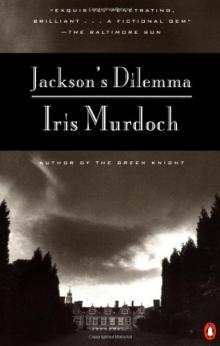 Jackson's Dilemma
Jackson's Dilemma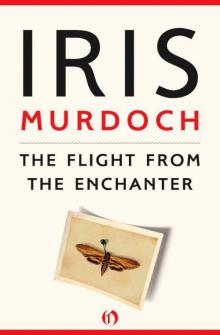 The Flight From the Enchanter
The Flight From the Enchanter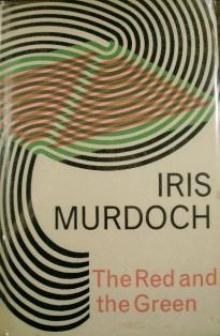 The Red and the Green (Vintage Classics)
The Red and the Green (Vintage Classics)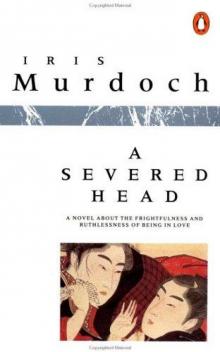 A Severed Head
A Severed Head The Black Prince
The Black Prince The Nice and the Good
The Nice and the Good The Unicorn
The Unicorn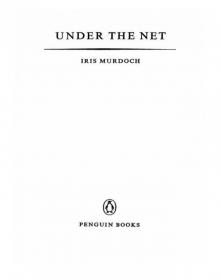 Under the Net
Under the Net The Italian Girl
The Italian Girl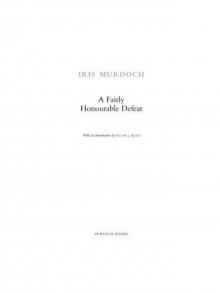 A Fairly Honourable Defeat
A Fairly Honourable Defeat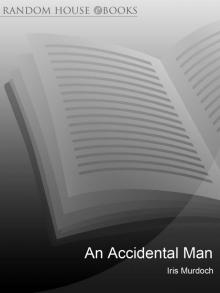 An Accidental Man
An Accidental Man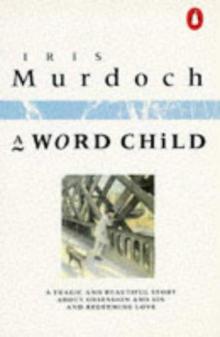 A Word Child
A Word Child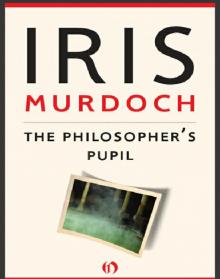 The Philosopher's Pupil
The Philosopher's Pupil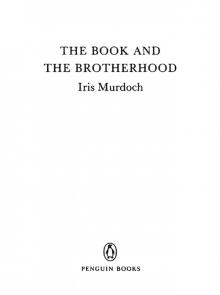 The Book and the Brotherhood
The Book and the Brotherhood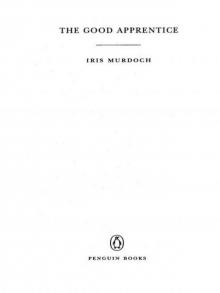 The Good Apprentice
The Good Apprentice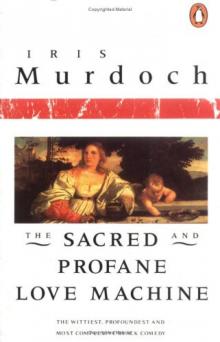 The Sacred and Profane Love Machine
The Sacred and Profane Love Machine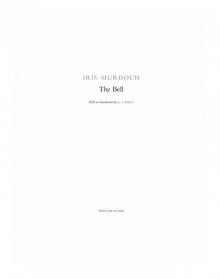 The Bell
The Bell Henry and Cato
Henry and Cato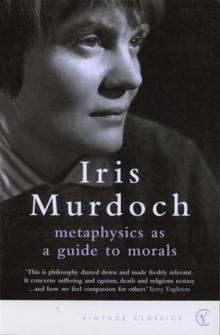 Metaphysics as a Guide to Morals
Metaphysics as a Guide to Morals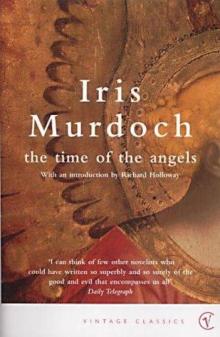 The Time of the Angels
The Time of the Angels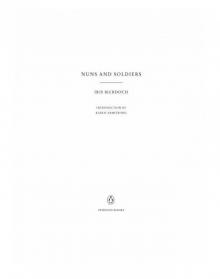 Nuns and Soldiers
Nuns and Soldiers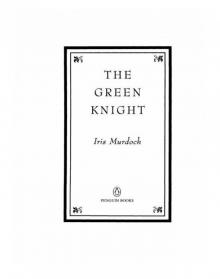 The Green Knight
The Green Knight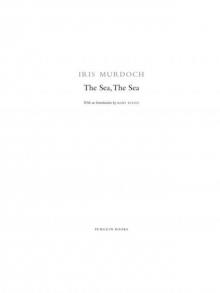 The Sea, the Sea
The Sea, the Sea Sartre: Romantic Rationalist
Sartre: Romantic Rationalist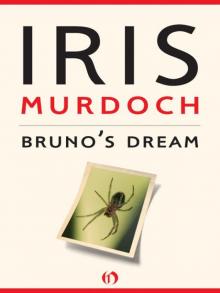 Bruno's Dream
Bruno's Dream An Unofficial rose
An Unofficial rose Sartre
Sartre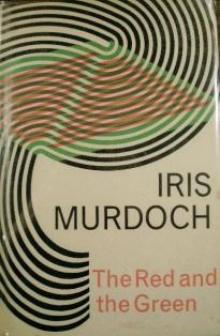 The Red and The Green
The Red and The Green